Last Page Update04/12/2024
12 Steps To Take Immediately When Stressed
By Dr. Ashraf Girgis ND
FROM BOOK OF HOLISTIC APPROCH TO STRESS PAGE 155


|
There are times that you can handle stress better than others. There are also things you can do in general to increase your ability to handle stress. However, we all have those days where nothing is going right. From traffic, to stress at home, to colleagues at work, sometimes there’s just too much going on at once. You can do some things right away to immediately alleviate and dissipate the anger and frustration as a result of the stress. Here I have compiled twelve ways to alleviate your stress. If you do not have time to do all twelve, that’s okay. But try to do as many as possible.
|
|
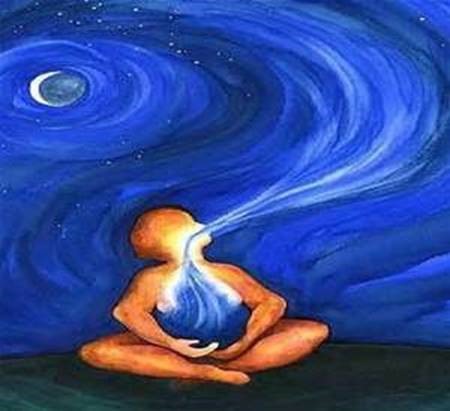 |
1.Deep breathing
Deep breathing brings more oxygen to our body and increases the flow of oxygen to our brain.
During stress we have a tendency to breath shallow and more rapidly causing what is known as hyperventilation. The hyperventilation cause carbon dioxide level fall below normal level, resulting in trembling and a choking feeling, which further exacerbates the situation and causes more anxiety and panic. Therefore, it is very important that any time we feel stressed, noticing our breathing and try to take a few slow deep breath.
Dr. Andrew Weil, MD has a developed a technique of 4-7-8 breathing that seems to be effective if performed daily. I have suggested this to many of my clients. His technique is explained in his CD, Breathing: The Master Key to Self Healing. Otherwise, I suggest you try to sit straight and take a deep breath, filling your lungs with air. Hold it for a few seconds, than exhale slowly and gently. It is more effective when you use your imagination. While you are taking a deep breath, imagine a nice steam entering your body and filling every single cell, from your head to your toes. Imagine it washing the anxiety and stress out, and replacing it with a feeling of being relaxed.
|
|
2. Give yourself a positive pep talk.
It is interesting to know that our body responds to what we tell ourself. The more you repeat, “I am so angry,” the more one becomes angry.
Therefore, try to make your self-talk positive, but realistic. Self-talk combined with visualization is especially powerful. To see how imaginations combine with self-talks affects you, imagine you have a nice, round, yellow lemon. Hold it and smell it. Then, put it on the table, take a knife, and cut it in half. Take a slice of it and put it in your mouth. You can see that you immediately start salivating. So, remember imagination combine with self-talk it is a great tool to use it when needed.
At the beginning of the 20th century, there was a French pharmacist Émile Coué who encouraged his patients to repeat to themselves, “Every day in every way I feel better and better”. He encourage them to repeat it as often as possible some times 20 times a day. His patients reported doing much better. Coué believed if we are preoccupied by some idea in our head, the idea will soon become a reality. In many cases I have used similar approaches with my clients and have seen a very positive results. When we say, “I feel calm and collected,” our body listens to us and respond. Even better, try to say it loudly. “I feel good and able to handle my stress much better!” I am not suggesting we ignore our real feelings and lie to ourselves; this would not be healthy.
Acknowledge the truth. After we have acknowledged the truth, only then can we say, “I am working to improve the situation. But at this very moment I need to leave it aside, and get back to it later”. Even make an appointment with yourself to go back to the issue that is disturbing and examine it; try to solve it or come to some conclusion.
|
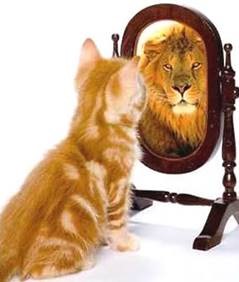 |
|
|
|
3. Exercise.
if your times allows go for a quick run or excercise. Run away from stress by running. Anotherword like our cavemen ancestors. Run away from predators(stress). Duriung stress cathecolines are relaesed. If not spent, these catecholamines can harm your systems and lead to many diseases, including cancer and heart diseases, in the long run. So, go for a fast walk, go and burn all the catecholamine in your system as the rsult of stress. Run if you can, or do any vigorous exercise to get rid of the toxins. Even five to ten minutes is enough to get your calm back. If you want, you can even dance! Close the door and do some vigorous dancing and shaking. Loosen up your muscles.
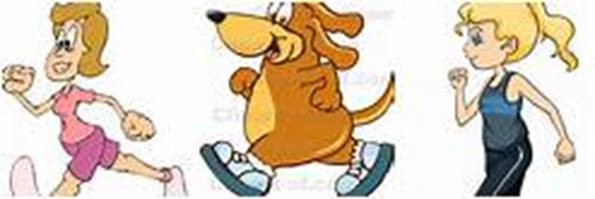
4. Call a friend or afamilymember and talk about your issue.
Make sure you call someone you can talk without censorship.You need to have a friend that you can call when you are upset, but make sure that you do not call them only when you are upset. That is basically conveying the message that he or she is being used. This, in long run, it is not beneficial. It might create resentment and hurt your friend’s feelings because they’re being used as your therapist.

|
|
5. Turn on the music.
Music can act like a memory book. When we listen to certain music at certain times, without knowing it we connect that particular song to the time we were listening to it. For example, I remember I was listening to some pop music on the radio when I had my daughter’s friends in the car. They would sing with it, and dance in the car. Since then, whenever I listen to that music I feel as though I am sitting with them in the car. So, if you have some music that would bring back good memories, listen to it; believe me, it makes you feel refreshed and much better.
6. Organize your closet!
Yes, organize your closet (or if you are at work, you can organize your desk, or even your purse). For some reason, your brain connects these actions with having control over your life, and it immediately make you feel calmer.
7. Write down what made you stressed or angry.Your brain perceives it as an unloading of your worries; the stress is out of your system, and therefore, you feel calmer.

|
|

|
8. Have time alone.
If at your office door, close your office door. Have few minutes by yourself. You can write things down,as you listen to your favorite music, or do nothing; just staying alone for a few minutes can help you regroup and feel better, especially if you have already taken few deep breaths.
9. Make yourself an herbal tea.
Make yourself an herbal tea.Use chamomile and lavender. Chamomile is good for relaxing, but it can also help you sleep. One small spoon of chamomile mixed with lavender, green tea, or by itself, will calm your nerves. Because green tea has a little caffeine in it, you won’t get too sleepy.Green tea is a great antioxidant and has many benefits. So make a cup of herbal tea and enjoy your calm and relaxed moment.
|
|
10.Being mindful
Being mindful is a great tool that can be used in any situation. Many scientists have studied mindfulness, and its benefits are numerous. When you direct your focus to the present moment, try doing so by using all your senses. Stress, pain, and anger seem to dissipate quickly. It is very difficult to be mindful when you are stressed and upset, as your mind seems to jump from one issue to another (this is called the “monkey mind” because of its jittery nature). However, trying to redirect your attention to the task at hand by observing the moment is very helpful.
I like Dr. Daniel Siegel’s acronym (a COAL state of mind):
Bringing Curiosity,
Openness,
Acceptance,
Love
and being at the precent momment, without any judgment. Accepting things as are. In ancient Iran, many Sufi Muslim scholars, poets, and scientists have placed great emphesis in the present time. example, Hafez-e Shirazi( Persian 1325–1389), was a poet who accentuated living at the momment. The similar beliefs are held among Buddhists and Yogis and some other traditions.
|
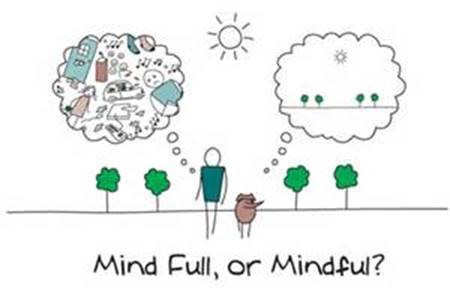 |
|
|
|
11. Massage.
The impact of massage—an ancient tradition for thousands of years—on the reduction of stress cannot be over-emphasized. In one study, 11 individuals peddled vigorously for 70 minutes. Participants received a massage on one leg for 10 minutes. The other leg was rested. Muscle biopsies were collected on both legs. A detailed analysis of the biopsies indicated reduced inflammation and increased mitochondria production in the massaged leg. The study was published in the journal Science Translational Medicine. “I didn’t think that little bit of massage could produce that remarkable of a change,” said Justin Crane, a Master doctoral student who led the study.
There are many studies that show a direct relationship between massage and stress reduction. So, feel free to use massage chairs or a licensed practitioner for a good massage to get rid of the stress induced toxins in your body. Even taking your shoes off and massaging your feet, or giving yourself a shoulder massage during stressful situations, will immediately reduce your stress levels.
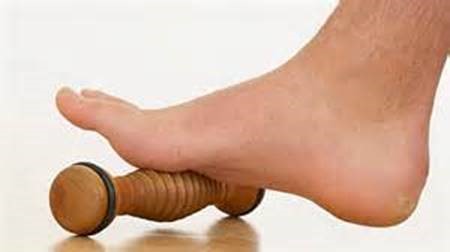
12. Aromatherapy
Distilled essential oils have been used ever since the Persian scientist Avicenna invented distillation. Rose water and lavender have been used as Aromatherapy in ancient Iran since anciant times. Currently, science proves the impact of aroma on the improvement of mood. Herbs beneficial for use in aromatherapy in reducing stress are:
Valerian
Neroli (orange blossom)
Clary sage
Chamomile
Marjoram
Ylang ylang
Sandalwood
Thanks for visiting www.curenaturally.org. For questions, please call our office at (616)-777-0608 and leave a message.Wish you the best in managing your stress. If you want to learn more about how meditate and the science behind it, feel free to sign up for Dr. Girgis’s seminars on our website.. Feel free to follow us on twitter for our latest postings.
Ashraf Girgis N.D.
|
References:
"AOL Search." Hafiz Poetry. N.p., n.d. Web. 01 June 2014.
"Aromatherapy." Wikipedia. Wikimedia Foundation, 21 May 2014. Web. 01 June 2014.
"Chronic Heart Failure." PubMed Health. U.S. National Library of Medicine, n.d. Web. 1 June 2014.
Girgis, Ashraf. 6 Steps to Tame The Dragon of Stress Within. N.p.: n.p., n.d. Web. 1 June 2014
"How to Reduce Stress and Improve Your Life with Positive Self Talk." About.com Stress Management. N.p., n.d. Web. 01 June 2014.
"Menu ." Does Brain Music Therapy Really Work? The Science of Brain Music. N.p., n.d. Web. 01 June 2014.
Ullman, Michelle. "Aromatherapy for Insomnia." About.com Bedroom. N.p., n.d. Web. 01 June 2014.
Weil, Andrew. "Spirit & Inspiration." The Art and Science of Breathing. N.p., n.d. Web. 01 June
"AOL Search." Hafiz Poetry. N.p., n.d. Web. 01 June 2014.
"Aromatherapy." . Wikimedia Foundation, 21 May 2014. Web. 01 June 2014.
"Chronic Heart Failure." PubMed Health. U.S. National Library of Medicine, n.d. Web. 1 June 2014.
Girgis, Ashraf. 6 Steps to Tame The Dragon of Stress Within. N.p.: n.p., n.d. Web. 1 June 2014
"How to Reduce Stress and Improve Your Life with Positive Self Talk." About.com Stress Management. N.p., n.d. Web. 01 June 2014.
"Menu ." Does Brain Music Therapy Really Work? The Science of Brain Music. N.p., n.d. Web. 01 June 2014.
.
|
|
Additional Articles
|
 The Key Word in Stress is: The Key Word in Stress is:
Perception, Perception, and More Perception
Read More
|

Laughter Therapy
Read More
|

How to Organize Your Life
Read More
|
|
|
|
|